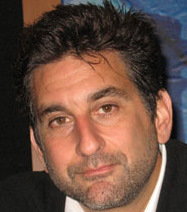Dean Starkman of the Columbia Journalism Review gives out his own “Audies” — named after CJR’s The Audit blog — for the top business journalism of 2008 and also offers some advice for business reporters on how to impress the Pulitzer judges next year.
 Starkman writes, “But it might be more productive to think of them as people who approach business and financial stories not as consumers or investors, but as citizens. This is a crowd, I suspect, who might approach business news this way: ‘No, I actually don’t want to get into the weeds of the credit-default swaps market or FAS 157 — just like we don’t want to learn about catalytic converters, heart stents, or the melting tendencies of Arctic sea ice. FAS 157 is your thing. Don’t make it our thing. What we need is the big stuff; the big changes on your beat — the financialization of the economy, for starters, and the fact that incomes are being grossly redistributed in all the wrong ways. We need to know who’s strong-arming the government, who’s bilking customers, who’s deceiving investors, which brand name, which Super Bowl halftime sponsor, is actually a bad actor — who’s running amok on us, basically. Then, when things are breaking down, at least we’ll know why. But if things are working right among directors, executives, raters, regulators, policymakers, and, yes, journalists, maybe they won’t break down in the first place.’
Starkman writes, “But it might be more productive to think of them as people who approach business and financial stories not as consumers or investors, but as citizens. This is a crowd, I suspect, who might approach business news this way: ‘No, I actually don’t want to get into the weeds of the credit-default swaps market or FAS 157 — just like we don’t want to learn about catalytic converters, heart stents, or the melting tendencies of Arctic sea ice. FAS 157 is your thing. Don’t make it our thing. What we need is the big stuff; the big changes on your beat — the financialization of the economy, for starters, and the fact that incomes are being grossly redistributed in all the wrong ways. We need to know who’s strong-arming the government, who’s bilking customers, who’s deceiving investors, which brand name, which Super Bowl halftime sponsor, is actually a bad actor — who’s running amok on us, basically. Then, when things are breaking down, at least we’ll know why. But if things are working right among directors, executives, raters, regulators, policymakers, and, yes, journalists, maybe they won’t break down in the first place.’
“I’m guessing here, but I think the bar is going to be high for any after-the-fact reporting, particularly when the facts are so bad, no matter how well done.
“But business staffs should take heart, and take pride in the great work above and others we missed. It’s not about recognition anyway, really.
“Here’s an idea: Think of the 2008 Pulitzers as a nudge toward big-picture, investigative, public-service reporting that takes on systemic problems and powerful institutions. Forget about traders and other cognoscenti once in a while. It’s what you want to do anyway, and it’s what most readers want to read.”
Read more here.
OLD Media Moves
Advice for biz journalists on how to win a Pulitzer
April 21, 2009
Dean Starkman of the Columbia Journalism Review gives out his own “Audies” — named after CJR’s The Audit blog — for the top business journalism of 2008 and also offers some advice for business reporters on how to impress the Pulitzer judges next year.
“I’m guessing here, but I think the bar is going to be high for any after-the-fact reporting, particularly when the facts are so bad, no matter how well done.
“But business staffs should take heart, and take pride in the great work above and others we missed. It’s not about recognition anyway, really.
“Here’s an idea: Think of the 2008 Pulitzers as a nudge toward big-picture, investigative, public-service reporting that takes on systemic problems and powerful institutions. Forget about traders and other cognoscenti once in a while. It’s what you want to do anyway, and it’s what most readers want to read.”
Read more here.
Media News
PCWorld executive editor Ung dies at 58
December 24, 2024
Media News
CNBC taps Sullivan as “Power Lunch” co-anchor
December 23, 2024
Media News
Business Insider hires Brooks as standards editor
December 23, 2024
Media News
Is this the end of CoinDesk as we know it?
December 22, 2024
Media News
LinkedIn finance editor Singh departs
December 21, 2024
Subscribe to TBN
Receive updates about new stories in the industry daily or weekly.